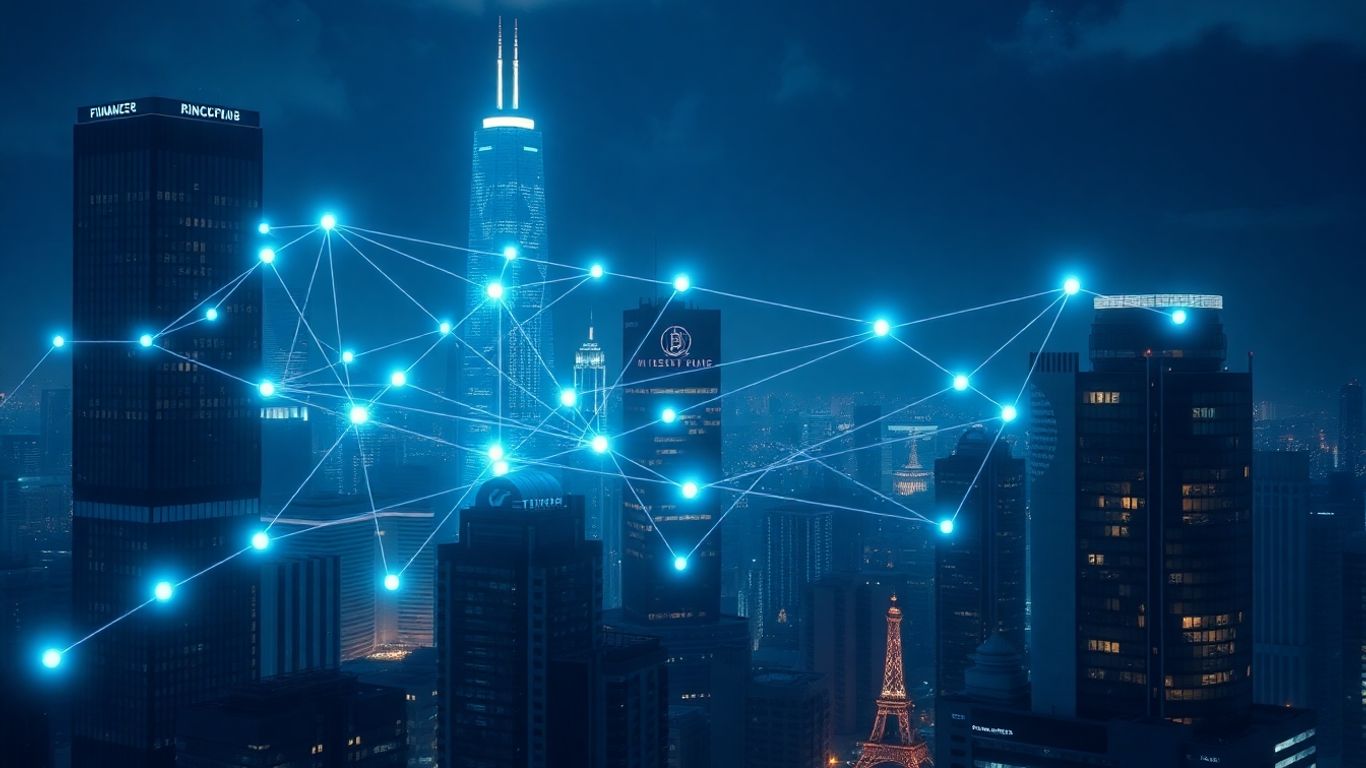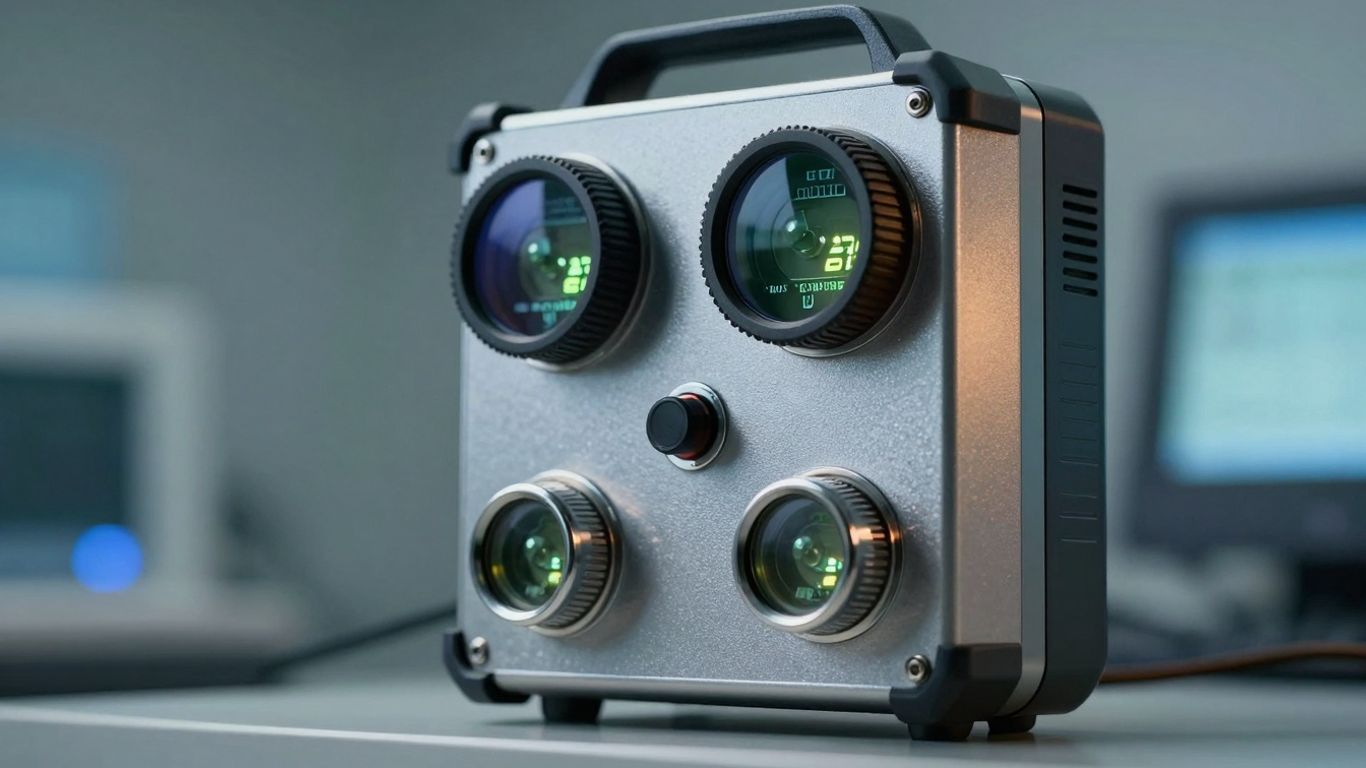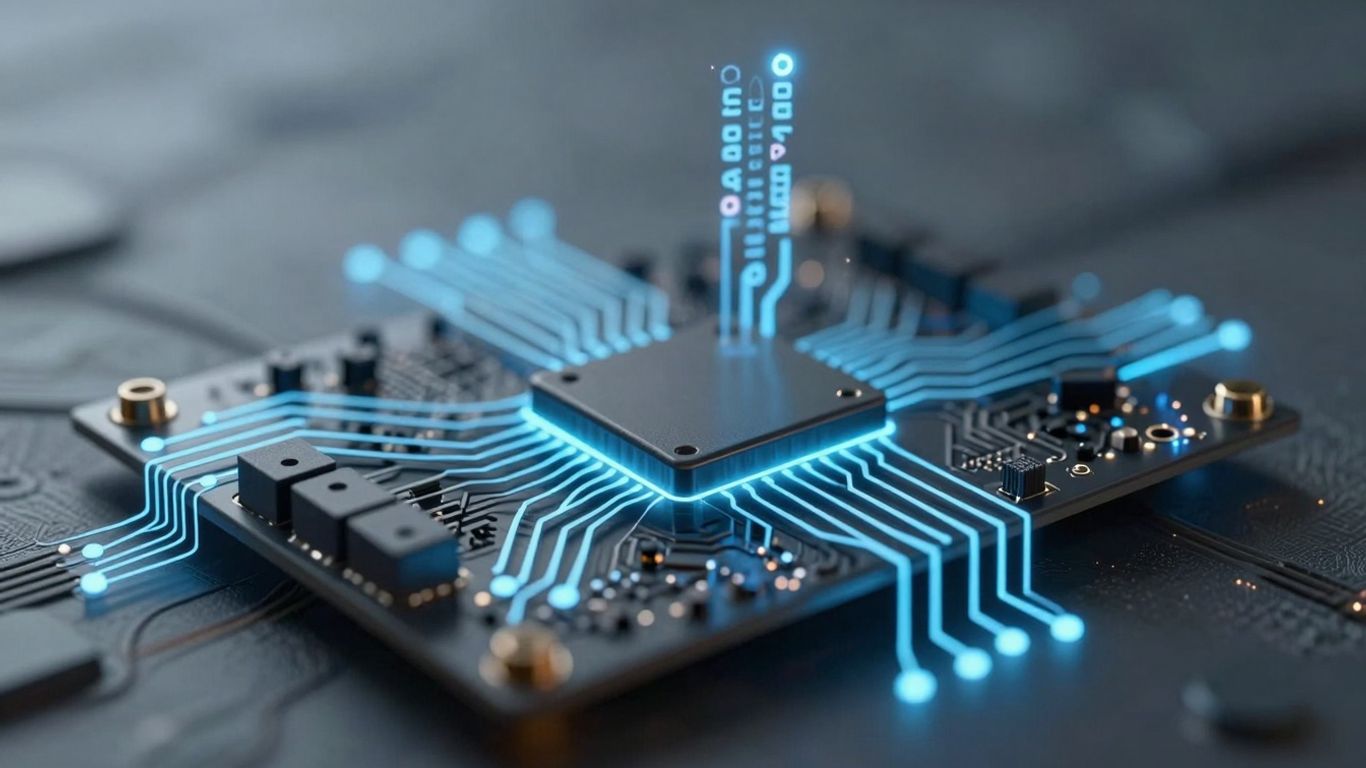[ newsletter ]
Stay ahead of Web3 threats—subscribe to our newsletter for the latest in blockchain security insights and updates.
Thank you! Your submission has been received!
Oops! Something went wrong. Please try again.
Explore blockchain audit essentials: transparency, new skills, AI, ethics, and future-proofing your audit practices.





The world of auditing is changing, and fast. New tech like blockchain is shaking things up, making old ways of doing things feel a bit… well, old. We need to get smart about how we check the books and make sure everything is on the up and up. This article is all about understanding the big picture of blockchain auditing and what it means for auditors today and tomorrow. Let's figure out how to get ahead of the curve.
The world of auditing is definitely changing, and blockchain is a big reason why. It’s not just about Bitcoin anymore; this technology is actually changing how we check financial records and make sure everything is on the level. Think of blockchain as a digital ledger, like a shared notebook, where every transaction is recorded. Once a transaction is added, it’s pretty much set in stone – you can’t go back and alter it. This makes it a lot harder for anyone to mess with the books or commit fraud.
Because blockchain records are unchangeable and shared, you can follow a transaction from start to finish. It’s like having a perfect history book for every single financial movement. This makes it much simpler to track where money or data has gone, spot any unusual activity, and just generally understand the flow of things. For auditors, this means less time spent digging through old papers and more time actually analyzing what the data tells us. It’s a huge step up in making sure everything is handled properly.
The core idea is that by using blockchain, we get a level of certainty about transaction history that traditional systems just can't match.
This unchangeable nature of blockchain records is a major win for preventing fraud. If a record can’t be tampered with, it’s much harder to hide any dodgy dealings. Auditors can rely on the integrity of the data, knowing it hasn’t been secretly altered. This builds a lot more trust in the financial information being reviewed.
Blockchain can also make it easier to meet regulatory requirements and verify information. Because the data is so clear and traceable, auditors can often complete checks more quickly and efficiently. This means audits can be done faster and potentially with fewer resources, while still maintaining a high level of accuracy and assurance. It’s about making the whole process smoother and more reliable.

The world of auditing is changing, and fast. New tech like blockchain is shaking things up, making old ways of doing things feel a bit… well, old. We need to get smart about how we check the books and make sure everything is on the up and up. This article is all about understanding the big picture of blockchain auditing and what it means for auditors today and tomorrow. Let's figure out how to get ahead of the curve.
Auditors today need to get friendly with data. This means more than just looking at spreadsheets. You'll be working with big datasets, finding patterns, and spotting things that seem off. Knowing how to use data analysis tools is a must. It helps you dig deeper into transactions and see what's really going on. The ability to interpret complex data sets and identify anomalies is becoming as important as traditional accounting principles.
Here's a quick rundown of what to focus on:
The ability to interpret complex data sets and identify anomalies is becoming as important as traditional accounting principles.
Blockchain isn't the only new thing out there. Artificial intelligence (AI) and machine learning (ML) are also changing how audits are done. You can't just learn something once and be done. You have to keep learning. Staying current is key to providing good service in this digital age, and there are many resources on blockchain accounting.
Here’s how to keep your skills sharp:
Being an auditor isn't just about finding mistakes. It's also about helping businesses improve. When you understand blockchain, you can give better advice.
Think about these areas:
It's pretty wild how Artificial Intelligence (AI) and Machine Learning (ML) are changing the game for auditors, especially when we're talking about blockchain. Think about it: these tools can sift through mountains of data way faster and more accurately than any person could. They're like super-powered assistants, spotting patterns and oddities that might signal trouble, which means we can do more thorough checks, looking at bigger chunks of information and finding things that might have been missed before. One of the biggest wins here is cutting down on the boring stuff. AI and ML are fantastic at taking over those repetitive jobs, like data entry or matching up records. This frees up auditors to actually focus on the more complex parts of the audit, the bits that need real human brainpower and judgment. It’s not about replacing auditors, but about giving them better tools to do their jobs more effectively.
ML algorithms can be trained on past transaction data to learn what normal looks like. Then, they can flag anything that seems out of the ordinary, like a transaction that doesn't fit the usual mold. This means we can get ahead of potential problems. Instead of just reacting to issues, we can start predicting where risks might pop up and deal with them before they become big headaches. It’s a much smarter, more proactive way to manage risk.
So, the AI and ML tools are great, but what do we do with what they find? That's where the auditor's skill comes in. It's not enough to just get a report saying something looks weird. We need to understand why it looks weird and what that means for the business.
Here's a breakdown of how to make sense of it all:
Understanding different markets, regulations, and cultural nuances is also important. Blockchain is a global technology, so our auditing approach needs to be too. We need to be comfortable working with diverse teams and understanding how blockchain impacts operations in different countries.
Ultimately, the goal is to turn raw data and algorithmic outputs into clear, actionable advice that helps businesses improve their processes and manage their risks better.
Bringing blockchain into the auditing world isn't just about new tools; it brings up some serious ethical questions and professional hurdles we need to think about. It’s a bit like learning to drive a new kind of car – exciting, but you need to know the rules of the road.
When we talk about blockchain, we're often dealing with a lot of sensitive information. While the technology itself is designed to be secure, how we handle that data before it even gets onto the chain, and how we access it afterward, is a big deal. Auditors need to be super careful about who sees what and make sure everything is protected from unauthorized eyes. It’s not just about the blockchain itself, but the whole process around it. We have to think about things like:
If we're using AI or machine learning tools to help with blockchain audits, we have to ask if those tools are fair. Algorithms can sometimes have hidden biases, which could lead to skewed results or unfair conclusions. Auditors must be able to question and understand how these algorithms arrive at their findings. This means looking under the hood, so to speak, to make sure the technology isn't accidentally creating new problems while trying to solve old ones. We need to be able to explain why a certain transaction was flagged or why a risk was identified, and that explanation needs to hold up. It’s about making sure the technology works for everyone, not just a select few.
It’s about making sure the technology works for everyone, not just a select few. This is a key part of verifying transactions and data access.
As auditors, our reputation is built on being independent and sticking to our professional standards. When we start using new technologies like blockchain, we need to make sure these core principles aren't compromised. For instance, if the company we're auditing is also the one providing the blockchain auditing tools, that creates a potential conflict of interest. We need to be clear about our role and ensure that our judgment isn't clouded by who is paying us or what technology we're using. It’s about staying objective and making sure our audit opinions are based on facts and sound professional judgment, not on the convenience of the technology. This means continuous training and a commitment to ethical conduct, even as the tools change. The core idea is that by using blockchain, we get a level of certainty about transaction history that traditional systems just can't match. This shift means auditors can focus more on strategic analysis rather than just verifying the basic accuracy of records. You can find more information on how firms are adopting this technology in studies investigating factors influencing auditors' adoption of blockchain technology within Big Four firms.

The world of auditing is changing, and fast. New tech like blockchain is shaking things up, making old ways of doing things feel a bit… well, old. We need to get smart about how we check the books and make sure everything is on the up and up. Integrating blockchain isn't just a trend; it's about making sure audit practices stay relevant and effective in the years to come. It's about getting ahead of the curve, not just reacting to it. This means auditors need to be ready for whatever comes next, and blockchain is a big part of that. It's a shift from just looking backward at what happened to also looking forward at how to prevent issues before they even start. The core idea is that by using blockchain, we get a level of certainty about transaction history that traditional systems just can't match. This shift means auditors can focus more on strategic analysis rather than just verifying the basic accuracy of records.
Think about it – technology is moving at lightning speed. What was cutting-edge a few years ago is practically old news now. For auditors, this means we can't just stick to the old ways of doing things. We need to be open to new tools and methods. Blockchain, for instance, can completely change how we track transactions and verify data. Instead of sifting through piles of paper or digital files, we can have a secure, transparent record that's almost impossible to mess with. This isn't just about making our jobs easier; it's about providing a better, more reliable service to our clients and stakeholders. We have to be willing to learn and adapt, or we'll get left behind.
Being agile is key here. It means being flexible and able to pivot when new technologies or regulations pop up. It’s like being a surfer – you have to read the waves and adjust your stance. A global mindset is also important. Auditing isn't just a local thing anymore. With businesses operating all over the world, we need to understand different markets, regulations, and cultural nuances. Blockchain, being a global technology, really highlights this. It connects systems and people across borders, so our auditing approach needs to do the same. We need to be comfortable working with diverse teams and understanding how blockchain impacts operations in different countries.
Here's what auditors need to focus on:
So, what's the big deal with blockchain when it comes to keeping our audit trails solid? Think of it like this: instead of a paper ledger that someone could easily smudge, rip out, or alter, blockchain is more like a digital record book. This book is copied and shared across a whole network of computers. Once a transaction or piece of data is written down, it's incredibly difficult to change or delete. This is a massive shift for auditors because it means we can trust the records we're examining a whole lot more.
The core idea here is that once data is on the blockchain, it's pretty much set in stone. This immutability means that the history of transactions is preserved exactly as it happened. For auditors, this translates to a much higher level of confidence in the data's integrity. We're not just taking someone's word for it; the record itself is designed to be tamper-proof. This drastically reduces the risk of fraud and errors going unnoticed.
The decentralized nature of blockchain, where the ledger is distributed across many nodes, further bolsters this trust. It's not stored in one place that could be compromised; instead, a consensus mechanism ensures that all copies of the ledger are consistent and accurate.
Another huge advantage is the ability to monitor transactions as they happen. Unlike traditional systems where audits often occur after the fact, blockchain allows for near real-time visibility. This means auditors can observe the flow of transactions and identify any unusual activity almost immediately. It's like having a live feed of financial activity rather than just a historical report.
This shift means auditors can spend less time digging through old records and more time analyzing the actual business processes and strategic implications. It's a move from reactive checking to proactive oversight, making the audit process more effective and valuable.
So, we've covered a lot about how blockchain is changing the audit world. It's not just about new computer programs; it's about making sure audits are more open, honest, and quicker. Sure, there are some bumps in the road, like needing to learn new skills and thinking about privacy, but the upside is pretty big. Auditors today and in the future need to be ready to learn, adapt, and use these new tools to do their jobs right. It's about being smart with data, keeping digital stuff safe, and always remembering to do the right thing. By jumping on board with these changes, auditors can really help businesses do better in this digital age.
Imagine blockchain as a super secure digital notebook that's shared among many people. Every time something happens, like a money transfer, it's written down in this notebook. Once it's written, it can't be erased or changed, and everyone has a copy. This makes it really hard to cheat or mess with records, which is great for auditors who need to make sure everything is honest and accurate.
Auditors need to learn new tricks! They have to understand how computers and data work together, like being good with numbers and technology. They also need to keep learning about new tech as it comes out, like understanding how smart computers (AI) can help them do their jobs better. It's also important for them to understand how businesses work so they can give good advice.
Computers that use AI can do boring, repetitive jobs for auditors really fast, like checking lots of records. They can also look at tons of information to guess where problems might pop up before they happen. This helps auditors focus on the tricky parts and find important clues.
One big challenge is keeping people's private information safe when it's on the blockchain. Also, if a mistake is made on the blockchain, it's super hard to fix because it's designed to be permanent. Auditors also have to make sure the computer programs (algorithms) they use are fair and don't have hidden biases, and they must always stay honest and independent in their work.
Because blockchain records are locked in and shared, they are very safe from being changed or faked. This means auditors can trust the information they see much more. It helps make sure that when someone looks at the records, they know it's the real deal and hasn't been tampered with.
Immutable means something cannot be changed or altered. In blockchain, once a transaction is recorded and added to the chain, it's permanent. Think of it like carving something into stone – you can't easily erase it. This makes the records very reliable for auditors.


